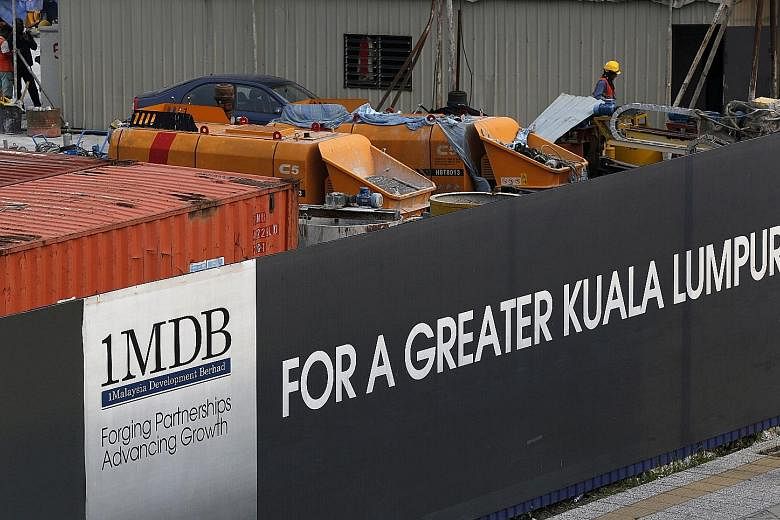Singapore businesses tend to keep their heads below the parapet when dealing with their closest neighbour.
The number of people who end up in jail for white-collar crime in Malaysia is negligible, according to government sources, even if some do get charged for unlicensed activities, falsifying information or insider trading.
The most recent case involved a couple who were arrested by Singapore police and then charged in Kuala Lumpur last October with insider trading. Goh Keng Huat and his wife Wee Siew Ling are accused of acquiring 851,600 units of Road Builder Holdings shares while in possession of material non-public information in 2006.
Goh was head of equity markets at Aseambankers Malaysia, now known as Maybank Investment Bank. The shares were said to have been acquired through his wife's trading account.
In the spotlight globally is the billion-dollar scandal surrounding state firm 1Malaysia Development Berhad. However, despite that, arrests due to graft cases and perception of corruption have not increased dramatically.
Still, several large Singapore outfits declined to speak to Insight about their experiences in the Malaysian marketplace, where managing "government relations" is itself a serious business.
Indeed, Transparency International (TI) Malaysia president Akhbar Satar says companies operating in Malaysia would "find it difficult to survive long" due to corruption in the civil service.
According to TI's annual Corruption Perceptions Index, Malaysia was 55th in 2016 among 176 indexed countries. Singapore was No. 7, second only to New Zealand (No. 1) among Asia-Pacific nations. "It's a 'no money, no talk' scenario," Datuk Akhbar tells Insight.
Malaysia's anti-corruption agency and the Registrar of Companies did not respond to requests for statistics on cases involving Singaporeans, but news reports show they are few and far between.
But international companies seeking to set up shop in Malaysia have long considered corruption a business risk. PricewaterhouseCoopers' Global Economic Crime Survey 2016 saw 30 per cent of respondents saying they faced corruption issues in Malaysia, up from 19 per cent the previous year.
The Asean Business Outlook Survey 2017 by the US Chamber of Commerce found that most respondents are still concerned about corruption in Malaysia, more so compared with five years earlier. But the majority marked themselves as "not applicable" in the questionnaire on pressure to bribe officials for contracts, licences or permits, or to speed up government services.
'NO-GIFT' POLICY AT STATE FIRMS
At a business-to-business level, corporate policies on gifts and entertainment are not dissimilar between Malaysia and Singapore.
"Companies can survive and do well in Malaysia without resorting to bribery," says corporate advisory Vriens & Partners' senior associate Adib Zalkapli, who points out that some of Malaysia's state enterprises have no-gift policies.
Human resources director Janelle Teoh, who moved from Singapore to Malaysia nearly a decade ago to join a consultancy, says there was an "initial cultural gap, as gifts are definitely more prevalent here".
"Here, you tend to have to form a relationship first. When you have to sell your proposal to all sorts of corporate clients, you figure out how they work," she says.
As with Singapore firms, most multinationals operating in Malaysia are bound by anti-bribery laws at home, says Mr Adib, pointing out that times have changed in business dealings between corporates and public service, with companies able to operate smoothly without resorting to corruption.
He adds: "Malaysian officials are more sophisticated now than before. Perhaps it was bad in the 1990s, but it's not like that any more."

